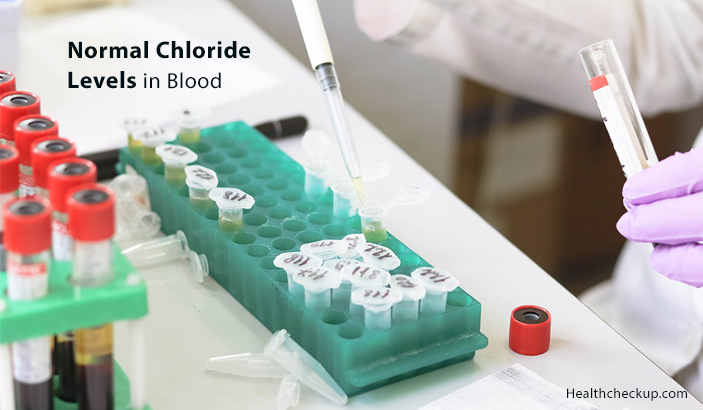Electrolytes have a crucial role in your body as they keep you healthy and hydrated. And one of the most important electrolytes is chloride. Together with sodium and potassium, they balance your body’s acid and base levels. It is responsible for the inflow and outflow of fluids in your cells. If you have low chloride levels, you are most likely dehydrated. High chloride levels in blood may indicate kidney problems. These are just a few reasons why it is best to check the normal chloride levels in your body.
What Is Chloride In Blood And How Is It Measured?
Chloride in your blood is very essential in keeping the proper balance of the fluid and acid in your body. It also helps in maintaining your blood pressure, blood volume, and pH levels. The chloride blood test, or serum chloride level, is used to measure the chloride levels in your blood. It is usually a part of a basic metabolic panel, which also measures the levels of other electrolytes such as carbon dioxide, sodium, and potassium.
What Are Normal Chloride Levels?
The normal chloride levels are between 98 and 106 mEq/L. It is worth noting that the results may vary in some labs as they may be using a different normal range for your serum chloride levels.
What Does Low Chloride In Blood Mean?
Low chloride levels may mean that you are suffering from a condition called hypoglycemia. This occurs when the number of chloride ions in your body is decreasing.
Abnormal chloride levels do not necessarily mean that you are suffering from a certain condition. Your serum chloride levels are affected by various factors, and other labs may be using a different method that could impact your result.
The amount of fluid in your body is also a factor that can affect your test results. For instance, the chloride levels in your body decrease as you lose fluid due to diarrhea or vomiting. It is best to talk with your doctor to know if your result is a sign of a health problem.
What Causes Low Chloride In Blood?
The most common causes of low chloride levels are
- Addison’s disease
- Burns
- Chronic lung disease
- Dehydration
- Hyperaldosteronism
- Excessive vomiting
- Excessive sweating
- Congestive heart failure
- Metabolic alkalosis
- Respiratory acidosis
How Do You Treat Low Chloride Levels?
If an electrolyte imbalance is detected by your doctor, you may be further evaluated if such is caused by a disease, condition, or medication you are currently taking. Your doctor will then treat the underlying condition or disease if that is the cause of your electrolyte imbalance.
If this is due to your medication, then your doctor may adjust the dosage or change a similar drug that functions the same without triggering low chloride levels in blood. If this is due to endocrine or kidney problems, your doctor may suggest you to see a specialist.
Chloride Food Sources
Chloride is present in sea salt or table salt. It is commonly known as sodium chloride. It can also be found in various vegetables such as lettuce, olives, celery, tomatoes, and rye.
What Does High Chloride In Blood Mean?
High chloride levels may be an indication of hyperchloremia. This occurs when the number of chloride ions in your body is increasing. But this should not be a problem for newborns because their serum chloride levels are usually high after birth. The rise of chloride levels is not a sign of a health issue.
What Causes High Chloride Levels?
The common causes of high chloride levels are
- Chemotherapy
- Severe dehydration
- Diarrhea
- Excessive urination
- Kidney disease
- Metabolic acidosis
How To Lower High Chloride Levels In Blood?
One of the best ways to manage hyperchloremia or high chloride in blood is by making lifestyle changes. If it is due to dehydration, then you need to drink plenty of water every day. You can also change into a healthier and balanced diet and avoid drinks such as alcohol and caffeine.
If this is due to a kidney problem, then you need to seek a specialist. If this is due to your medication, your doctor may prescribe a different drug or change the dosage of your medication.
Conclusion
If you maintain proper hydration, you will most likely achieve normal chloride levels. Your chloride level usually depends on the amount of fluid you consume or lose. Abnormal chloride levels are not usually a concern, but it may indicate an underlying problem.
Doctor, author and fitness enthusiast, Ahmed Zayed, MD, is a surgery resident with a passion for helping people live a happy healthy life. He is the author of numerous health-related books and contributor to several medicine, health and wellbeing websites.









